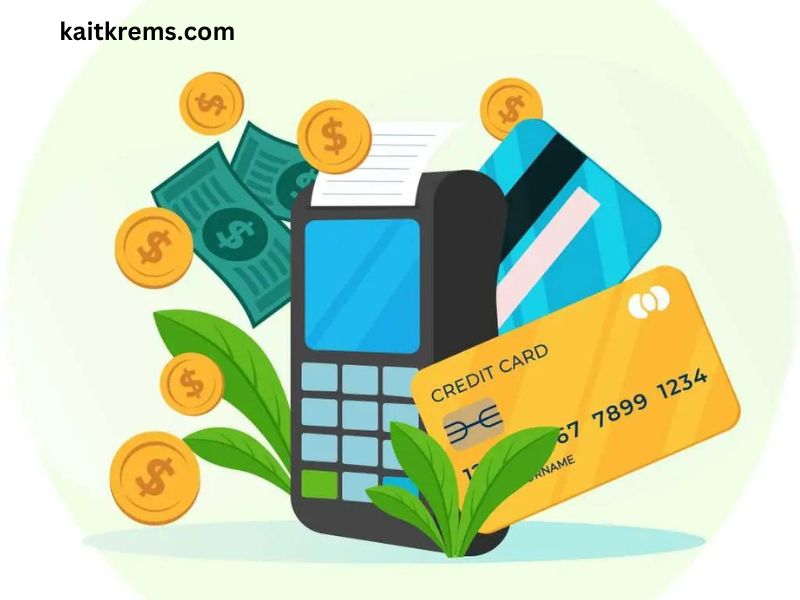Credit cards have become an integral part of personal finance, offering convenience and flexibility when it comes to making purchases. With various perks like cashback rewards, travel points, and consumer protections, they can seem like a smart tool for financial management. However, credit cards are a double-edged sword, and there are situations where financing purchases with a credit card is not a wise decision. While there are many positive reasons to use a credit card, such as building credit or earning rewards, not every reason is beneficial. In fact, there are several reasons that might appear advantageous at first but can lead to financial trouble in the long term. In this article, we will explore which reasons are not positive for using a credit card to finance purchases, as well as the potential risks associated with them.
1. Carrying a Balance to Build Credit
A common misconception is that carrying a balance on your credit card from month to month will help build credit. Some people believe that not paying off their balance in full demonstrates their ability to manage credit responsibly, which will improve their credit score. This is not a positive reason for using a credit card to finance purchases.
In reality, carrying a balance does not improve your credit score; in fact, it can harm it. Your credit utilization rate, which measures how much of your available credit you’re using, is a key factor in your credit score. The higher your utilization rate, the more it can negatively impact your score. Carrying a balance increases your credit utilization and leads to interest charges, which will cost you more money in the long run. To build credit, it’s best to make regular, on-time payments and keep your credit utilization low—ideally below 30% of your credit limit.
2. Using Credit Cards for Impulse Buying
Credit cards make it easy to purchase items on a whim, and they remove the need to part with physical cash, which can make it harder to control impulsive spending. While it might seem harmless at the moment, using a credit card to finance impulse buys is not a positive reason for relying on credit.
Impulse buying can lead to spending beyond your means, especially if you are using credit to purchase items you don’t need or can’t afford. This habit can quickly lead to a cycle of debt, where the balance on your card grows larger each month, resulting in interest charges and potentially damaging your credit score. It’s important to avoid using credit cards as a way to satisfy impulsive spending urges. Instead, establish a budget and use your credit card only for planned purchases that you can pay off in full.
3. Taking Advantage of Low Minimum Payments
Credit cards offer the option to make minimum payments, which can be as low as 1-3% of your balance. While this might seem like a convenient way to manage your finances, using credit cards because of low minimum payments is not a positive reason for financing purchases.
Relying on minimum payments can be financially destructive. When you only pay the minimum, the remaining balance continues to accrue interest, often at high rates, which can range from 15% to 25% or more. Over time, this can significantly increase the total amount you owe, and it may take years to pay off the debt. The low minimum payment option may provide temporary relief, but it ultimately increases your debt and the cost of your purchases. It’s best to pay more than the minimum and, whenever possible, pay off the full balance to avoid interest charges.
4. Financing Everyday Expenses
Some people use credit cards to finance everyday expenses like groceries, gas, or utility bills, thinking that the rewards or cashback will offset the costs. However, if you are relying on a credit card to pay for essential items because you don’t have the cash on hand, this is not a positive reason to finance these purchases.
Financing everyday expenses with a credit card can lead to a dangerous cycle of debt if you’re unable to pay off the balance in full each month. When you don’t have enough cash to cover basic living expenses, it’s a sign that you may need to re-evaluate your budget and spending habits. Using credit as a crutch for day-to-day expenses can result in accumulating debt and interest charges, making it even harder to manage your financial obligations in the future.
5. Taking Cash Advances
Credit card companies often offer cash advance services, allowing you to withdraw cash from an ATM using your credit card. While it might seem like an easy way to get quick access to cash, taking out a cash advance is not a positive reason for using a credit card.
Cash advances come with a host of drawbacks. First, they often carry higher interest rates than regular credit card purchases, and interest starts accruing immediately, without the grace period that typically applies to regular purchases. Additionally, cash advances often come with extra fees—typically around 3% to 5% of the amount borrowed. These factors make cash advances an expensive way to access cash, and they should be avoided unless absolutely necessary.
6. Purchasing Beyond Your Means
Credit cards can give the illusion of increased purchasing power, encouraging people to buy items they otherwise wouldn’t be able to afford. Financing purchases you cannot afford is not a positive reason for using a credit card.
When you make large purchases without the ability to pay them off, you risk accumulating debt that becomes unmanageable. High-interest rates can cause your debt to grow rapidly, making it difficult to pay down the balance. This can also lead to missed payments, late fees, and a negative impact on your credit score. It’s important to live within your means and only use credit cards for purchases you know you can pay off in full by the due date.
7. Relying on Balance Transfers to Manage Debt
Balance transfer offers, which allow you to transfer debt from one card to another, often come with promotional interest rates, such as 0% APR for a limited time. While this might seem like a helpful tool for managing debt, relying on balance transfers is not always a positive reason for using a credit card.
While balance transfers can temporarily reduce the interest you’re paying, they don’t eliminate the underlying debt. Additionally, many balance transfer offers come with fees—typically 3% to 5% of the amount transferred—that add to your overall debt. If you’re not careful, you may find yourself in a worse financial situation once the promotional period ends and higher interest rates kick in. It’s important to have a plan for paying off the transferred balance before the promotional period expires, rather than relying on balance transfers as a long-term debt management strategy.
8. Financing Non-Essential Purchases
Using credit cards to finance non-essential purchases, such as luxury items, vacations, or entertainment, is not a positive reason for relying on credit. While it can be tempting to use a credit card to fund experiences or items that enhance your lifestyle, this type of spending can quickly lead to debt if you’re not careful.
Financing non-essential purchases can strain your budget, especially if you’re unable to pay off the balance in full. The interest that accrues on these purchases can turn an exciting vacation or new gadget into a long-term financial burden. Before using a credit card for non-essential spending, it’s important to assess whether you can truly afford the purchase and whether it aligns with your financial goals.
9. Ignoring the Long-Term Consequences of Credit Card Debt
Many people focus on the short-term benefits of using credit cards, such as convenience, rewards, or the ability to defer payments. However, ignoring the long-term consequences of credit card debt is not a positive reason for using a credit card.
Credit card debt can have serious long-term effects on your financial health. High-interest rates can make it difficult to pay off your balance, leading to years of debt and potentially damaging your credit score. A lower credit score can affect your ability to secure loans, mortgages, or even employment opportunities in the future. It’s essential to consider the long-term implications of credit card use and avoid accumulating debt that could take years to repay.
Conclusion
While credit cards offer many benefits, such as convenience, rewards, and the opportunity to build credit, not every reason for using a credit card is positive. Carrying a balance to build credit, using credit for impulse purchases, relying on minimum payments, and financing non-essential items are all examples of poor reasons to use a credit card. Additionally, using credit cards for everyday expenses, taking out cash advances, and relying on balance transfers can lead to a cycle of debt that is difficult to escape. To make the most of your credit card, it’s essential to use it responsibly, pay off your balance in full each month, and avoid financing purchases you cannot afford.






